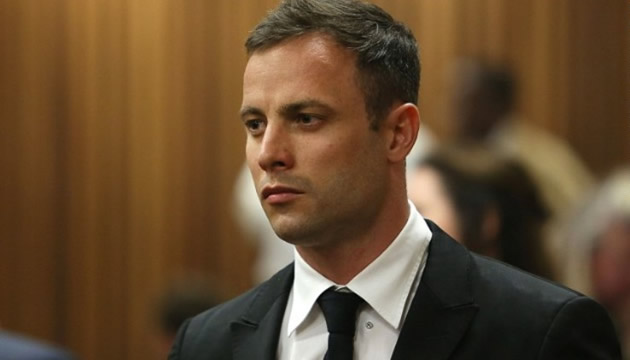Corporate unrest: Chance to edify your image

The country’s biggest football team, Dynamos has had an indifferent start to this year’s season as a string of draws and losses has left them in an unfamiliar position on the log, raising the ire of the supporters who at one point ran running battles with the police as they sought to vent their anger on the club’s management.The demonstration has dented Dynamos image and reputation. Similarly when such things happen to corporates, they have far reaching effects which in some cases are difficult to fix.
Across the breathe of the country’s corporate world, various organisations have faced demonstrations over a number of issues such as retrenchments and salary issues.
Cases that come to mind include the strike by National Railways of Zimbabwe (NRZ) employees over salaries and demonstrations by BancABC and GMB employees over their retrenchment packages to name a few.
Some players in the corporate world have failed to handle such unrest leading to corporate fatigue.
But for the astute corporate players, that instability opens doors to the edification of an organisation’s image and reputation.
It is a chance for corporate PR practitioners to improve, promote and maintain a reputable corporate face.
It is the chance for PR to edify and promote organisational image and reputation. And the first step is to understand the culture of your organisation and avoid recreating a new culture during such unrest.
To edify your organisation’s image and reputation tap into the culture of the organisation and that way one would be able to deal with corporate violent action.
Manchester United’s last two games of the just ended season against Tottenham Hotspurs and West Ham United in London were marred by violence amongst the fans that resulted in lot of damage.
But for the Manchester United community, who abhor violence from the fan base to the Board, they were like sheep being led to the slaughter in London.
Back home, the Dynamos chairman was fighting for himself and his management team more than the club’s image and reputation when violence erupted in their league match against FC Platinum at Rufaro.
This is where the communicators at the club need to know the real culture of Dynamos not to create a new one.
The corporate world should also be privy to the wisdom of the law in time of corporate violence or unrest.
It is important for organisations to anticipate how to react and how to use the law at hand when a crisis takes centre stage.
It was folly for the Dynamos chairman to avoid the fans. It was also folly for some sections of the media to lay the blame on the supporters alone.
The fans, executive, players and team secretariat all belong to Dynamos and when it comes to corporate unrest, the case of an injury to one is an injury to all applies.
A fan has the capacity to stain the image of Dynamos just as an executive member.
In the Manchester United cases, the clubs and fans of both Tottenham and West Ham were punished by the English Football Association because they all bore the colours of their corporate institutions.
A holistic approach to corporate violence prevents internal reputation fissures within an organisation.
It is critical for organisations to study the cause of the unrest and ensure they correct their behaviour and conduct.
This is where PR becomes vital as it studies the situation and brings forth measures to correct the organisational image and reputation.
Most institutions fail to tell their story focusing on the accusations, thus engaging into war with the media and those elements seeking a solution to their issues. Telling an organisation’s true story promotes its image and reputation.
PR makes an entity judge and analyse its reputation correctly. Most organisations think that their popular institutional reputation can conquer corporate unrest, and armed with that they decide to take the bull by its horns.
When unrest or corporate violence occurs publics and stakeholders quickly tend to forget all that the organisation’s achievement.
When Manchester United and Dynamos are not winning the fans deal with what is happening — which is losing and past achievements certainly do not count.
It is therefore important for the corporate world to make correct judgment and tell their story than to go toe-to-toe with their restless fans.
Corporate violence is usually heightened because there is lack of communication of policies and strategies by the company or organisation.
Sometimes strikes, unrest and violence are prevalent because organisations do not take such opportunities to communicate and educate their publics on what they have done wrong and the missing links in their policy and strategic.
Retrenched Grain Marketing Board (GMB) workers recently camped for weeks at the organisation’s headquarters demanding their dues.
National Railways of Zimbabwe (NRZ) is continuously facing demonstrations from its employees and retrenched workers seeking settlement of their unpaid dues.
All this is a result of policies and strategies which are not communicated thoroughly and sufficiently.
In most cases organisations make false promises and incorrect information is disseminated which result in such corporate violence. This exacerbates image and reputation stains of the organisation.
Crisis management strategy is critical to sprucing-up the image and reputation of entities. The corporate world should always lean on their crisis management strategies to ensure such unrest is subtle and has no corporate identity effects.
Most organisations lack crisis management strategies and are only react when corporate violence erupts.
The health sector in Zimbabwe has always been reactionary to doctors’ and nurses’ strikes. Having a crisis management strategy edifies corporate image and reputation in organisational unrest because it stipulates the steps necessary to avert crises.
It is vital that in such corporate turbulence the industry promotes its moral obligation by taking advantage of the unrest to communicate its positives.
Communicating positives edify the organisation’s image and reputation. For instance when violence erupt at sporting activities, it is thus vital to communicate the importance of family days or outings on such activities.
Unrest should make the organisation huddle together in unity like a family by fostering dialogue, relationship management harnessing and communication based on clarity and truth.
Corporate unrest may be viewed as an action that stains the industry, but it is a chance for organisational PR units to edify and promote corporate identity, image and reputation. It is up to organisations to scan it positively for positive image and reputation.
This article has been prepared by the Zimbabwe Institute of Public Relations. For feedback, comments and inquiries on the work of ZIPR, please email [email protected] .







Comments